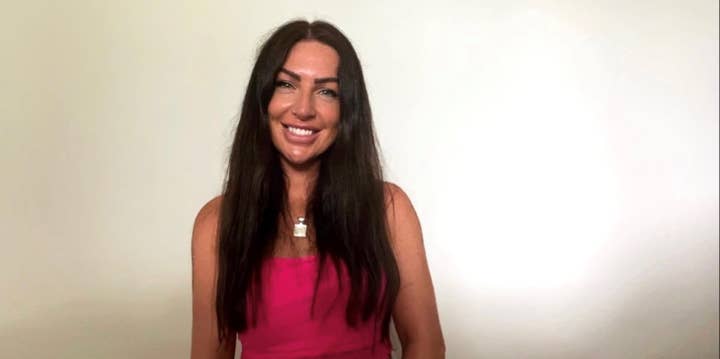How to succeed at a games industry job interview
Amiqus' Louise Wardale shares advice on how best to prepare for an interview
Congratulations! You've got an interview! That is an achievement in itself, so be proud that your CV has stood out from the many that the recruiter will have received.
First up, it's worth remembering that your interviewers are rooting for you. They want the next person who comes through the door -- or logs on to a video call -- to be the person they hire. They're not there to trip you up or make you feel awkward. They want you to succeed, as much as you want to.
However, the key to success is in preparation and planning. Here are our top tips...
Get the basics right
If your interview is 'in person', make sure you know the correct address and how to get there on time. If you need to travel, allow plenty of time for trains being cancelled or traffic jams. You don't want to turn up late and/or flustered.
Prior to the interview, don't be afraid to ask for a dress code. It sounds simple but some places have different ideas of 'smart casual' and you want to make a great initial impression to them -- as well as feeling as confident as you can.
Ask if you need to prepare anything. This makes you look invested in the role and avoids you feeling caught out.
If you need to ask for any reasonable adjustments to be made for the interview process, remember that it is your right to do so
With video calls still being utilised by many at present, make sure that you have the right link and that you have installed any software that's required. If it's a Teams link, for example, you might need to register beforehand, so that you're not late to the interview on the day.
Also, check your background and lighting -- a good tip for presenting yourself on video is to position your laptop and camera higher than desk height (on some books maybe), which is a more flattering angle.
Make sure that the name the interviewers will see on the screen is your real name, rather than a nickname you used during virtual quizzes with friends. And finally, please don't forget to charge up your laptop.
If you're in a virtual interview remember it's still an interview, so body language is very important -- no slouching in your chair, sit up, make eye contact and look engaged. It's easy to forget when you are not physically walking into a formal interview setting, such as a studio or an office space.

If you need to ask for any reasonable adjustments to be made for the interview process -- such as a list of questions in advance or a floorplan of the studio you're visiting, remember that it is your right to do so. Games studios are making good progress in ensuring that their workplaces are welcoming and inclusive for all, so don't feel that you will be 'marked down' in any way.
Find out as much as you can about the people who will be interviewing you -- do some research via LinkedIn and the 'About Us' section of their website. This should help you feel more comfortable, but it may also give you the opportunity to make a better connection with them if you feel that you 'know' them.
Finally, make sure you've done your research on the studio and its games. This is vital for preparing for the ultra-popular interview question: "Why do you want to work here?". The interviewer will want to see that you've done your homework. Read the job spec again and review your CV and covering letter to remind yourself of what they know about you already.
During the interview
Smile! The interviewers will know that you're nervous and the good ones (most of them, in our experience) will try to put you at ease. If you're meeting in person, we'd normally recommend a good firm handshake, but during these COVID times, it's probably best to avoid that. And I'm not sure that many of us are comfortable yet with the elbow bump...
If there's a question you find challenging and you need to think about the answer, don't rush
Answer each question as well and as thoroughly as you can and speak clearly. Pro tip: there are often delays of a couple of seconds during video calls, so use this time (even if there aren't any delays) after each question to take a breath, think and answer.
If there's a question you find challenging and you need to think about the answer, don't rush -- ask if you can have a minute. If you haven't done something before, consider how you might approach it rather than say you don't know -- you will get kudos for attempting to answer. In the unlikely event that there's a question you really can't answer, say so, rather than stumble. You can always offer to follow up with them after the interview, if you think you can do that.
But overall, show positivity and enthusiasm for the company and the role. Your interviewers want to see that you really want the job.
"Do you have any questions?"
In many ways, this is the trickiest part of any interview. You want to show how keen you are to be selected for the position, and how interested you are in the studio. But often your mind can go blank. So, make sure you have questions ready in advance, and really think about what you want to know.
Remember an interview is a two-way street. Potential employers should want to get you excited and answer your questions about the company and role, so ask away!
Remember an interview is a two-way street. Employers should want to get you excited and answer your questions about the company and role, so ask away!
Here are some ready-made questions that you could ask:
-"What will be a typical working day for me?"
If the interviewer hasn't talked you through this, it will be genuinely useful for you to visualise processes and how you'll be working, if you are successful in landing the role. This is particularly important if this is your first job.
-"What would be your ideal candidate for this role?"
This may give you a hint about whether or not you are being considered. But if the interviewer mentions any particular skills or attributes that you have, this is an opportunity for you to highlight them again.
-"What will be my biggest challenge in this role?"
Again, this will give you some valuable insights into the pressures you will face in the job. But it will also suggest to the interviewer that you're ready to take on challenges.
-"How will my performance be measured?"
This tells your interviewer that you are results-driven and happy to learn and progress. Which leads us to...
-"What training and development programmes are available?"
If a recruiter makes a good hire, they want to keep that person. Therefore, demonstrating that you want to grow and build your career within that studio will be a plus point. And from your perspective, it's good know that you will be able to further develop your skills within the company.
-"What have you most enjoyed about working here?"
This will give you the opportunity to connect with the interviewer on a personal level -- and will also give you some insight into the company culture within the studio.
Demonstrating that you want to grow and build your career within that studio will be a plus point
And here are a couple of 'don'ts' when it comes to asking questions...
- It's a cliché and probably a little unfair, but don't ask how many days of annual leave you'll get. Yes, you have every right to know, but if the interviewer hasn't covered this off in the interview preamble, a better way to ask would be to enquire about benefits in general. And make sure it's not your first question. If you've been dealing with a recruiter for the role, then you can ask them.
- Don't ask a question that can be answered easily by doing some research on the company.
- And try to avoid asking a question that's been answered earlier in the interview.
If there's anything that you feel you didn't answer to the best of your ability or there's a question that you forgot to ask, put them in a follow-up email. This shows you've thought about the process and are keen on the role.
What to avoid
Here are a few things we recommend you not do:
Even the most seasoned professional feels nervous in an interview for a job they really want
- Being late: Or if you've been unavoidably and unexpectedly held up, ring ahead and let them know. And apologise.
- Bad-mouthing previous employers: This is never wise, as it just leaves the interviewer wondering if you would do the same to them -- and if you might have been the problem in your previous position. Also, the games industry is a very close-knit community. It's very possible that your interviewer worked at that studio in the past or has friends there.
- Panic: Even the most seasoned professional feels nervous in an interview for a job they really want; it's a natural feeling. But a good recruiter knows that -- and will try to put you at ease. If you've only had a handful of interviews, or it's your first, tell them that. Similarly, if you are very nervous, tell them that too. The recruiters have done hundreds of interviews, so will understand and try to make you feel more comfortable.
Good luck!
Louise Wardale is a recruitment consultant at recruitment specialist Amiqus. She can be contacted via louise.wardale@amiqus.com.
More GamesIndustry.biz Academy guides to Working in Games
Our guides to working in games cover various perspectives, from hiring to retention, to landing the job of your dream or creating the right company culture:
